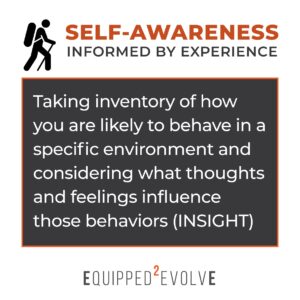Think back to the last idea or story you read that made an impression on you. So much so, you were compelled to write lots of notes, tell someone about what you read, snap a picture of a passage, write a review on amazon, or buy a copy of the book to give as a gift.
When was the last time you revisited that book or article that aroused and captivated your attention?
My intent is to encourage you to embark on a journey of rereading, so that you upgrade from consuming to investing in content. When you consume, you focus on informing your present self. When you invest, you focus on transforming your future self.
As I reflect on any piece of writing that has transformed my life, it is writing that I have engaged with more than once. When I stumble on prose that moves me, I don’t want to merely taste or borrow it. I want to own it. I want to embody the words whereby they become part of my mental and emotional machinery. I want to see the world and act in it differently because the author’s language has imprinted itself inside of me.
Rereading is a commitment to depth. By diving deep with rereading, you start being able to move from insight to action, from acquiring knowledge to distilling wisdom.

A book I reread to rewire my brain for action is Difficult Conversations: How to Discuss What Matters Most by Bruce Patton, Douglas Stone, and Sheila Heen. In Difficult Conversations, the authors bring awareness to how when we have a difficult conversation, we often default to these three questions in our mind: “Who was right?” “Whose fault was it?” and “Why did they act this way?” These questions produce a posture of defensiveness and denial. Patton, Stone, and Heen offer mindset shifts that help us flex into discussion and development.
One that I revisit often is shifting from “whose fault was it?” to “what did I contribute to this?” This distinction between blame (motivated by judgment) and contribution (motivated by understanding) has helped me to take responsibility for what I did or didn’t do that influenced the outcome.
For example, I don’t like spicy food. My wife, Rachel, does. She and I went out to dinner last night and ordered tacos that came with three different colored salsas. Rachel asked the waitress to describe how red, light green, and dark green differed in their amount of spice. My interpretation of what the waitress said differed from Rachel’s. Nonetheless, I decided to follow Rachel’s lead only to become disappointed because it turned out that what Rachel thought was mild was extremely hot. Instead of getting angry and blaming her for this mistake, I acknowledged how I contributed to this undesirable outcome by choosing not to ask the waitress for clarification. The reason I was able to, in the moment, make this shift from blame to contribution is because I frequently reread Difficult Conversations.
Upon first reading something that grabs your attention, you don’t yet consciously know why it has grabbed your attention. It is only after having examined the content multiple times, that you start to unveil and discover the gems hidden in what your mind initially detected. This is the crystallization of insight. This is where you begin to go from cultivating a skill to utilizing it.
We are all familiar with this phenomenon when learning a motor skill. For example, before we could drive a car with any automaticity, we had to practice many repetitions to get familiar and comfortable with the foundational components–sensing the amount of pressure to apply to the pedals, utilizing the mirrors, merging lanes, and gauging our distance between cars. There is no substitute for repetition to be able to go from unconscious incompetence to unconscious competence, i.e., the ability to text and drive (not that I am recommending this!)
Rereading is a form of repetition that can also take you from unconscious incompetence to unconscious competence, not just of the insights themselves, but of yourself.
“No man ever steps in the same river twice, for it’s not the same river and he is not the same man,” (Heraclitus).
Rereading, both the source material and the notes/highlights you made, is one of the best ways to integrate the perspectives of your past, present, and future selves. This is even more true when you invest time in rereading that which you, yourself, have written.
Every month, I reread my wedding vows. This holds me accountable to loving Rachel as a verb.
Call to Action: The next time you have the urge to consume something new, spend 10 minutes rereading something that tickled your sensibilities. (While you might not be able to physically tickle yourself, you can mentally. Therefore, your own writing counts). After those ten minutes, ask yourself:
- What stood out to you that you forgot was in there?
- What are you seeing now that you didn’t see as clearly before?
- What did you read that is relevant for you now that didn’t register for you last time?
- Given what you reread, what action will you take?
- Who will benefit from your action?




